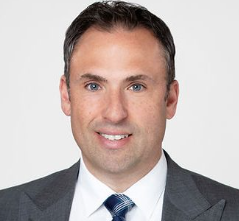Most estate plans are created years—sometimes decades—before an inheritance is actually distributed. In that time, a beneficiary’s life can change in ways no one could have predicted. Someone who was responsible and fully capable at the time you signed your Will or Trust could later face cognitive decline, disability, or another form of incapacity. Regularly updating your estate and working with a skilled and experienced Issaquah, WA trust lawyer can help to make sure that your trust and estate function the way you intended them to do.
Without clear planning language, a Personal Representative or Trustee may be forced to distribute assets directly to someone who can no longer manage them, or go through court procedures to find a workaround. Washington is now introducing a new tool that can serve as a built-in fallback option for these situations — the Washington Uniform Custodial Trust Act (WUCTA), effective July 27, 2025.
What The Washington Uniform Custodial Trust Act (WUCTA) Does
The new law creates a simple way to hold and manage assets for an adult beneficiary who cannot — or chooses not to — manage property themselves, without requiring a full trust administration or court-controlled conservatorship.
A custodial trust under the WUCTA works like this:
- Property is titled in someone else’s name “as custodial trustee under the Washington Uniform Custodial Trust Act.”
- The beneficiary still owns the property, but a custodial trustee manages it.
- For taxes, everything is still reported under the beneficiary’s Social Security number, keeping things simple.
The custodial trust can be created in two ways:
- By transfer — someone transfers property directly to a custodial trustee.
- By declaration — someone names a custodial trustee through a Will, trust, insurance policy, or beneficiary designation.
Unlike a UTMA account for minors, this custodial trust does not automatically terminate at age 25. It continues until:
- The beneficiary (if competent) ends it by written notice,
- A conservator steps in on their behalf, or
- The beneficiary passes away.
What This New Option Does Not Do
WUCTA is a flexible fallback tool — not a replacement for a traditional protective trust. Here’s what to understand:
- A competent beneficiary can terminate it at any time. If someone is irresponsible but legally competent, this structure will not stop them.
- It does not protect against creditors or Medicaid recovery.
- It is not designed for long-term special needs or addiction concerns. In those cases, a full discretionary or supplemental needs trust is still the right tool.
In other words — this is a practical safety net for unexpected incapacity, not a restriction tool.
Trustee Responsibilities Under WUCTA
A custodial trustee has fiduciary duties, but they are lighter and easier to manage than the administration requirements of a traditional trust.
- If the beneficiary is competent: The trustee follows their instructions but must act prudently if no direction is given.
- If the beneficiary becomes incapacitated: The trustee may use the property for the beneficiary or their dependents without needing court approval.
- They must keep records, separate trust property from personal assets, and provide information when requested.
They are also granted management powers similar to trustees under RCW 11.98.070, but without the complex investment standards that apply to full trusts. This makes WUCTA less expensive and simpler to administer.
When A Custodial Trust Would Be Useful
This new tool is designed for real-life situations like:
- A beneficiary was once responsible but later develops dementia or cognitive decline.
- A child scheduled to receive assets at a certain age suffers an accident or mental health event before distribution.
- A Personal Representative or Trustee wants to avoid distributing money directly to someone who cannot realistically manage it, but no trust exists for them.
Before now, the only options were custodianship, court petition, or negotiating a post-death agreement. Starting in 2025, a WUCTA custodial trust becomes a cleaner built-in option — if the Will or Revocable Trust includes this contingency language.
How We Handle This
At Eastside Estate Planning, we proactively include fallback distribution options so your plan can adapt if a beneficiary loses capacity after your documents are signed. Instead of forcing an outright distribution, we allow fiduciaries to:
- Distribute to an existing trust already built into your plan, if available.
- Use a UTMA structure for beneficiaries under 25.
- Create a WUCTA custodial trust for adult beneficiaries who become incapacitated unexpectedly.
This layered approach makes certain there’s flexibility without court involvement, giving your Personal Representative or Trustee a clear legal path forward.
Preparing For What Life Might Bring
Good estate planning isn’t just about what should happen — it’s about preparing for what might happen.
If your current Will or Trust doesn’t give your fiduciaries options in the event a beneficiary becomes incapacitated later in life, this is the time to update it and Robert Franco at Eastside Estate Planning is available to do this. He has over a decade of experience successfully helping clients with their estate planning needs. He holds an advanced law degree in taxation which enables him to execute in‑depth tax planning (estate, gift, income, capital gains). If you need help with a trust or other estate planning issue, reach out to us today to schedule a consultation.













